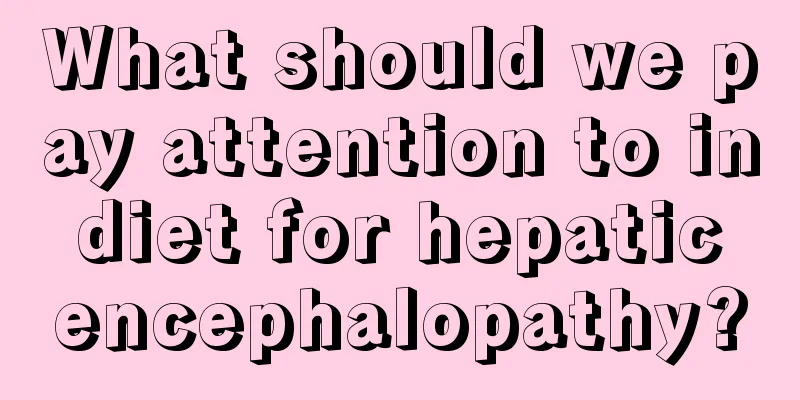What should we pay attention to in diet for hepatic encephalopathy?

|
For patients with hepatic encephalopathy, they must pay attention to scientific treatment methods in their lives, and also pay attention to scientific eating habits. They should control total energy and protein, reduce ammonia production in the body, and pay attention to vitamin supplementation. 1. The principle of dietary treatment for patients with hepatic encephalopathy is to control total energy and protein and reduce ammonia production in the body. Energy supply should be appropriately controlled, and 6.7MJ (1600kcal) per day is appropriate. The diet should be mainly carbohydrates, which should account for 75% of total energy. When the patient is comatose and unable to eat, nutrients can be supplied through a gastric tube if there is no esophageal varices. If there is esophageal varices, intravenous drip of 20% glucose saline or drip of hypertonic 50% glucose solution (vitamin C and energy mixture can be added) should be used to maintain heat energy needs. 2. For comatose patients, the daily protein supply should be controlled at around 0.5g/kg/person, and the supply should be adjusted every 2 to 3 days, but the maximum limit should not exceed 1g/kg/person. If the patient has increased blood ammonia and neurological symptoms, animal protein should not be given within 2 to 3 days. Then, start supplying at 0.2 to 0.3 g/kg/person and adjust it every 2 to 3 days. For patients with renal insufficiency or hepatorenal syndrome, protein intake, especially animal protein, should be strictly limited. 3. The amount of fat in the diet should be 30-40g per day. In order to prevent insufficient heat supply, fat emulsifiers can be used to increase energy and prevent diarrhea. 4. The supply of vitamins should be sufficient, especially more vitamin C, to facilitate detoxification. A low-protein diet often leads to deficiencies in calcium, iron, vitamin B2, vitamin K, etc., which should be supplemented in addition to the diet. Studies have shown that copper and zinc levels in the brain decrease during liver failure, which may be one of the causes of hepatic coma. Therefore, attention should be paid to zinc and copper supplementation in dietary treatment. 5. The supply of water and salt depends on the presence or absence of ascites and edema. If accompanied by ascites or edema, a low-salt or salt-free diet should be given, and fluid intake should be restricted. |
<<: Can I eat fish if I have hand, foot and mouth disease?
>>: Is eating ginger effective for kidney deficiency?
Recommend
How to make Japanese style cake
When we were young, our mother was around and we ...
Grilled Chicken Burgers
It is true that being able to eat is a blessing, ...
Wenyi Cooking How to make colorful braised rice
Wen Yi Cooking's five-color braised rice is m...
The best way to pickle goose eggs to make them oily but not salty
There are many ways to eat goose eggs, among whic...
Fish bone method.
Fish is something we eat often. Most people will ...
How to make black fungus and mushroom porridge
You take us to a restaurant to eat, and we almost...
How to make oyster soup?
Oysters are a type of shellfish seafood. It is co...
How to make bacon bamboo shoot rolls
A beautiful and fulfilling childhood will inevita...
How to make Meiling porridge in the Republic of China
Everyone likes to eat home-cooked meals. Simple f...
Nordic Berry Ginger Cake Recipe
As people's living standards improve, they be...
How to make cold celery shreds
We Chinese have a proverb that goes, if you want ...
How to make black and white forest mousse cake
What do you do when you are unhappy? Maybe you wi...
Animal Party Practice
Cooking by yourself is indeed a very happy thing....
How to make preserved eggs
Preserved eggs are also called songhua eggs. Ther...
How to make strawberry peanut nougat
Do you always eat instant noodles whenever you ar...









